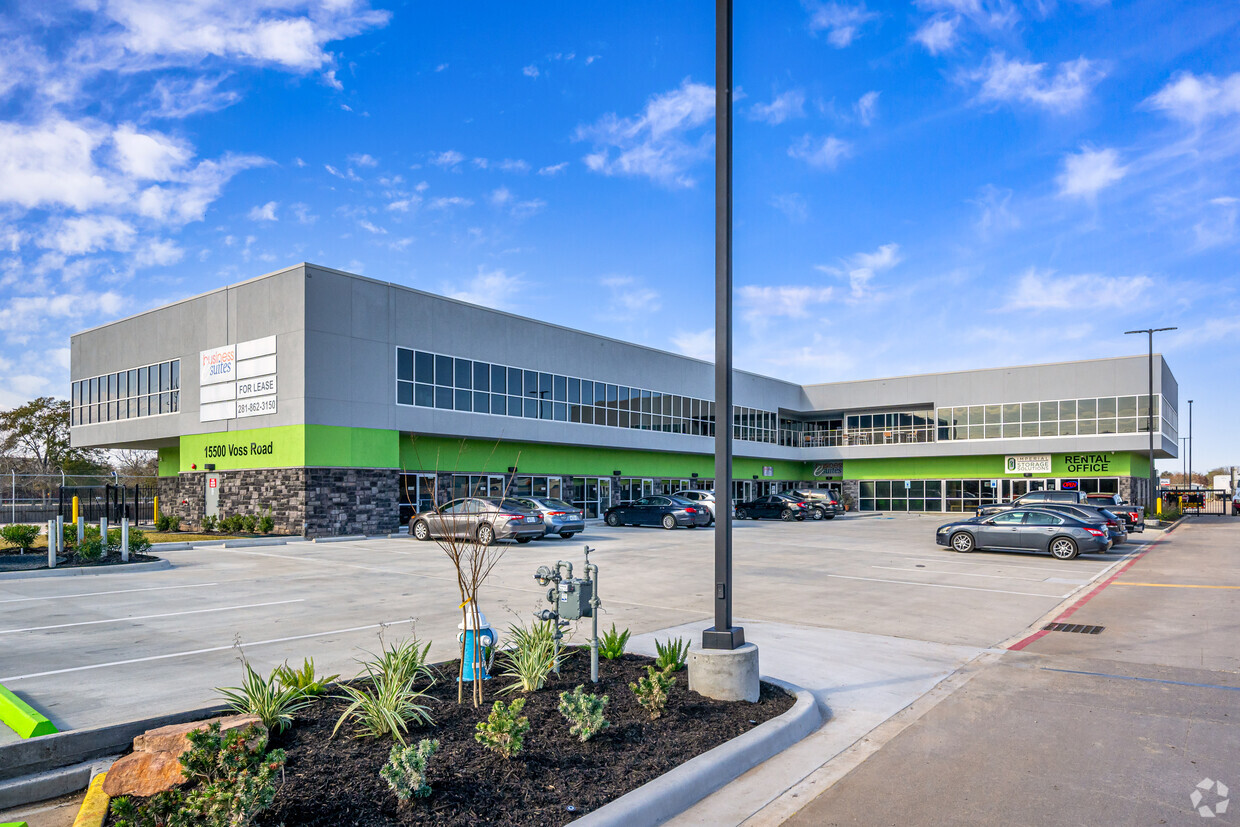
Shameless plug: For access to your local co-working location which includes co-working, private offices, dedicated desks, and conference rooms … as well as long term parking, self-storage and warehouse units all in our business park (Imperial Business Park), visit www.businessesuites.com and www.imperialstoragesolutions.com.
Contact Colin Croteau (community manager) for a tour. Colin can be reached at 281-862-3150
—- April 20, 2021 Jon Banister, Bisnow Washington, D.C
For more than a year, city governments encouraged people to stay home to slow the spread of the coronavirus.
But that message has shifted, and cities are now pushing to bring people back to offices to help revive their downtown areas, and they see coworking spaces as a way to accelerate that effort.
Over the last three months, Miami, New York and D.C. have announced partnerships with WeWork to offer discounts to companies bringing people back to the office. The coworking company finances the discounts without city subsidies, but the cities are using their promotion and marketing power to push people toward the WeWork spaces.
WeWork Head of Public Affairs and Communications Christina Ferzli told Bisnow she joined the company in January and immediately began pushing to grow WeWork’s relationships with local governments by meeting with officials and hearing their priorities, and that quickly turned into this new partnership model.
“‘How do we bring people back downtown to shop, buy lunch and coffee, and revitalize the economic prosperity in these cities?’ That was a key theme for most of the cities we spoke to,” said Ferzli, who had previously led corporate affairs and communications at juice giant Ocean Spray, according to her LinkedIn page. “We realized we could help with that post-pandemic recovery.”
WeWork is planning to expand the partnership model around the country and the globe, Ferzli said. She said it is preparing to announce three new partnerships in the coming months, but she didn’t disclose which cities.
She said the partnerships are aimed at helping businesses get back to the office quickly and affordably and helping cities revive activity in their downtown areas, and the new business also helps WeWork recover from the coronavirus pandemic. WeWork last month announced plans to go public through a special-purpose acquisition company merger valuing the company at $9B.
While coworking companies were the first to feel the pain when people stopped coming into the office, given the short-term nature of their leases, Ferzli said they can also be the first ones to benefit from the return to work.
“There’s never been a stronger moment for flexible office space, and WeWork is so uniquely situated in helping businesses adjust to this new normal and providing turnkey solutions to scale,” Ferzli said. “In helping cities with their economic recovery, we are looking to grow our member base with businesses that need help coming back.”
The New York partnership was announced on March 16, and it is structured as a partnership between WeWork and the chambers of commerce of the five boroughs, with a focus on small businesses. The D.C. partnership, announced March 24, is between WeWork and Mayor Muriel Bowser‘s administration. The Miami partnership, announced on Jan. 21, is with Mayor Francis Suarez‘s administration, and it is focused on technology companies.
Ferzli said she has seen a significant shift take place over the last month in which cities are now focused on promoting a return to the office, rather than telling people to stay home.
“Most cities are targeting the spring and summer for this as we continue to see positive trends in the pandemic itself,” Ferzli said. “Now through the fall is where we’re going to see that bigger push for a return to work.”
A WeWork office at 125 South 25th St. in the Flatiron District in New York.
Manhattan Chamber of Commerce President Jessica Walker said the ongoing rollout of the vaccines has given people confidence to start returning to the office, and the city is now encouraging that return. She said small businesses are likely to be the first to return to the office, as many large companies have already pushed their returns back to the fall or to next year.
“We’re all focused on trying [to] accelerate the city’s economic recovery, and for a lot of reasons, that means we need a large percentage of [the] workforce to begin coming back to the office,” Walker said. “We think it’s critical in the short-term to focus on small businesses and what we can do to get them fully engaged again.”
She said the WeWork partnership is particularly helpful in accelerating the return to work for small businesses, because companies can start with a small space and expand as they build momentum, and they aren’t saddled with upfront costs.
The New York partnership offers two months of free office space for companies that make a six-month commitment, three months for those that make a 12-month commitment. It also offers a one-month free trial and 12 months of 15% for WeWork All Access, a pass that allows members to use any WeWork location in the city.
“WeWork and these types of models are made for businesses that are going to come back with maybe two employees, and then they can move into a larger office in a month or two when they’re ready,” she said. “The specific deals WeWork is offering are steep discounts, so businesses are able to relaunch and not have to pay rent for the first three months of an annual lease, which is a big deal for businesses trying to get back. It gives them breathing room.”
Ferzli said 76% of the members WeWork is seeing return to the office are small and medium businesses, rather than its larger enterprise members.
“It’s small and medium-sized businesses that are coming back, they’re the ones taking advantage of the program at the moment,” Ferzli said. “We were expecting small and medium to be the first to come back because they’re a little more agile.”
In D.C., WeWork is offering the same discounts as in New York, but instead of the chambers of commerce, it is partnering with the Office of the Deputy Mayor for Planning and Economic Development.
Deputy Mayor for Planning and Economic Development John Falcicchio told Bisnow the District is planning to kick off a new effort next month to encourage companies to return to the office.
“Now we have had a year of experience of how to keep people safe when they return to the office, we also know vaccination rates continue to rise around the region, so that builds our confidence that now is the time,” Falcicchio said.
He said he sees the partnership with WeWork as a way to support this return-to-work effort. He said WeWork was an ideal partner because of its footprint throughout the central business district, allowing people to pick the location that is best for their commutes.
“I think coworking will become more a part of the landscape than it was before the pandemic,” Falcicchio said. “Because we know people are looking at how they carry that overhead of a lease, and what coworking allows you to do is a more flexible way to get out of the house and focus on work.”
Falcicchio said D.C. is also in discussions with WorkChew, a D.C.-based startup that turns restaurant and hotel spaces into flexible workspaces during the hours when they are underutilized. He invited WorkChew to speak alongside WeWork on a DMPED event earlier this month to promote its offering, he said he is helping connect it with restaurant and hotel groups, and he said DMPED employees have begun to use WorkChew spaces.
“For businesses, it’s another way to capture revenue,” he said of WorkChew. “We want to highlight the concept and let the marketplace know it exists as people think about how they might return to work.”
Downtown D.C. Business Improvement District Director of Economic Development Gerry Widdicombe said he supports the WeWork partnership, but he doesn’t think it will make a huge dent in the return-to-work effort. He noted that coworking space only accounts for 1% to 2% of D.C.’s office market, so it will be more important to push major employers with large office footprints to bring back their workforces.
“As people tiptoe back into the office, WeWork and their promotions will be very important, but it’s important to put the whole coworking sector in the proper perspective,” Widdicombe said. “Is it a game-changer? I don’t think so, but it’s certainly a good step in the right direction.”
While WeWork has the largest coworking footprint in many major cities, its competitors also see their spaces as helping cities in their return-to-work efforts.
Industrious Chief Commercial Officer Anna Squires Levine, in emailed responses to Bisnow questions, said the company “definitely” sees partnering with cities as a potential opportunity to explore. She said most companies are still looking to open downtown offices to serve as a hub for employees and then supplementing that with neighborhood-based offices.
“It’s then a rising tide lifts all boats scenario where neighboring businesses feel the benefits of the resurgence in foot traffic from the workers now coming into the office,” she said in the email. “Those moments driven by office workers — Thursday happy hours at the beloved bar near the office, running out to grab lunch at the deli on the corner — will bring a boost to those businesses who have been really missing this audience throughout the pandemic.”
IWG CEO of the Americas Wayne Berger, whose company operates the Regus and Spaces brands, said he is seeing an increase in D.C. companies looking to return to the office, with month-over-month inquiries up 32% in March.
“There will always be a role for major city offices and the networking and cultural benefits they offer, and by offering employees flexible workspaces within these hubs, they become tools to facilitating the eventual return of these bustling business districts in an even more sustainable and livable way,” Berger wrote in an emailed statement.
Bringing people back to work is important to revive the downtown restaurant and retail sector, Widdicombe said, as many of these businesses rely on office traffic. He also said it would help the District’s budget, because downtown retail businesses wouldn’t have to continue relying on government support.
“We think it’s important from the city’s point of view, the sooner they bring people back they don’t have to do another bridge fund, so they can save $100M,” Widdicombe said. “We’d rather have people come back and create real demand for restaurants.”
Midtown Manhattan
In Midtown Manhattan, Walker said foot traffic is still down by more than 50%, and bringing workers back to offices will be critical to support retail and restaurants.
“Any time we can bring office workers back to those areas, that’s a huge multiplier effect that’s going to keep people employed as doormen, keep people employed at restaurants and shops,” Walker said. “It’s fundamentally important to the city’s ecosystem.”
In addition to bringing employees from their apartments to their offices during the day, Walker said New York also needs to bring back the remote workers who left the city during the pandemic, and she thinks coworking space can play a role in that effort.
“A lot of remote workers have left the state, and so we have to think about all these things because it has an effect on local stores, shops taxes, and the feel of the city if we lose a ton of creative talent that makes New York City what it is,” Walker said. “We still have work to do to bring the workforce back.”
While New York seeks to bring its workforce back and revive its office districts, other states with less of an established office market are looking to draw remote workers to find a new home, and they are also using coworking as a tool in that effort.
West Virginia last week launched a program to attract remote workers with an incentive package that includes $12K in cash payments, free outdoor recreation and free coworking space. The program, funded by West Virginia native Brad D. Smith and his wife, Alys, is a partnership between the state’s tourism agency and West Virginia University.
Danny Twiley, the assistant dean for WVU’s Brad & Alys Smith Economic Development Collaborative, said the goal of the program is to keep people in West Virginia for the long term, and he sees the coworking offering as a critical part of that effort.
“We really want to retain these individuals, because we’re asking them to move to a new state, a new community they haven’t lived in before, and we want them to connect with new members of the community,” Twiley said. “If you’re working from home, that’s really hard to do unless you have an established community.”
The program launched last week and has received 5,000 applications, Twiley said. It plans to welcome its first cohort of about 50 people this summer. He said the coworking offering will launch in a space on WVU’s Morgantown Campus, and the program is planning to build out three new coworking spaces that the university will operate in Morgantown, Shepherdstown and Lewisburg.
Twiley said it hasn’t decided on the exact size of those new spaces, as it wants to see how much usage the first space receives, but he said it aims to put the spaces in busy locations where the workers can help revitalize the surrounding retail and restaurants.
“As we build out space, we want it to be in energy centers of communities,” he said. “We put it in those energy hubs so people will then say, ‘I want to go out to eat. Let’s get to know each other, go out to lunch, grab a cup of coffee or meet me after work.’ We’re trying to support the local communities and the businesses that are already there.”
Read the full article at www.Bisnow.com




